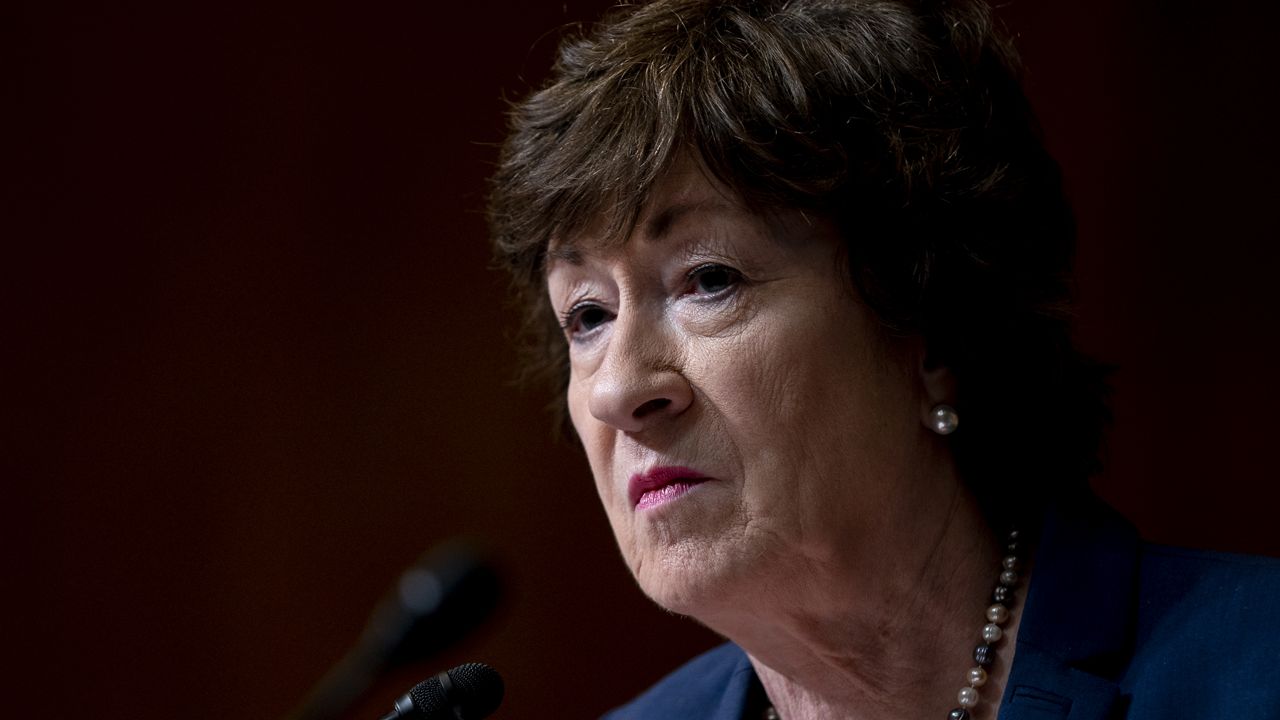A group of five Democrats and five Republicans in the U.S. Senate announced Thursday they reached a tentative “compromise framework” on infrastructure funding.
The group — which includes Democratic Sens. Jon Tester, D-Mont., Kyrsten Sinema, D-Ariz., Joe Manchin, D-W.Va., Jeanne Shaheen, D-N.H., and Mark Warner, D-Va., and Republican Sens. Bill Cassidy, R-La., Susan Collins, R-Maine, Lisa Murkowski, R-Alaska, Rob Portman, R-OH, and Mitt Romney, R-Utah, — said they are still working with other lawmakers and the White House to cement an agreement.
Thursday’s announcement included few details on a potential price tag for the package, with senators stressing only that it would be “fully paid for and not include tax increases.”
Negotiations are still ongoing, and final numbers have yet to formally be announced and are subject to change.
But multiple Congressional sources familiar with the plan confirmed several details to Spectrum News, which were first reported by NBC News on Thursday evening. CNN and the New York Times have also reported the figures.
Overall, the current plan is set to include a total of $1.2 trillion in infrastructure spending over eight years, with $579 billion in new spending; $974 billion would be spent over the first five years after the bill’s passage.
On Sunday, speaking to CBS' Face the Nation, Maine Sen. Susan Collins elaborated further about the bill, including how it would be paid for.
"There won't be a gas tax increase and we won't be undoing the 2017 tax reform bill," Collins said Sunday, noting that the plan will rather repurpose unspent COVID-19 relief funds, implementing an infrastructure finance authority and fees for electric vehicles.
"When you have a state like California, which has an enormous surplus, and yet we're giving billions of additional dollars to that state, I think we can find room to repurpose some of this money," she added regarded the unspent COVID funds, claiming that there are "hundreds of billions of dollars in the pipeline" that can be utilized.
It’s unclear whether the package will be enough to incentivize other senators to jump on board, or if the White House will accept the deal.
Collins said Sunday that she believes that their plan will work where other negotiations have failed because it is a "bipartisan" agreement.
"We have five Republicans and five Democrats who got together to hammer out the framework for a targeted, responsible infrastructure package," she said.
A key part of President Joe Biden’s $1.7 trillion infrastructure plan is how it will be paid for, and Biden has proposed raising the corporate tax rate from 21% to 28%, a nonstarter for Republicans. And even that number is down from Biden’s original $2.3 trillion proposed infrastructure package, which he lowered during previous negotiations with GOP Sen. Shelley Moore Capito of West Virginia.
Those negotiations only recently fell apart, as Biden ultimately rejected the Republican senator’s $928 billion proposal, which included about $330 billion in new spending.
It appears the White House still has questions about the new proposal, but seems open to new negotiations with the group of bipartisan lawmakers.
“The President appreciates the Senators’ work to advance critical investments we need to create good jobs, prepare for our clean energy future, and compete in the global economy,” deputy White House spokesperson Andrew Bates said in a statement obtained by CNBC. “Questions need to be addressed, particularly around the details of both policy and pay fors, among other matters.”
Spectrum News has reached out to the White House for comment.
The response from fellow senators to the newest proposal has been mixed.
Utah Sen. Mitt Romney, one of the senators involved in the creation of the new package, told reporters that Senate Minority Leader Mitch McConnell was briefed on the deal Wednesday, and seemed “open” to it.
But Sen. Ed Markey, D-Mass., told CNBC on Thursday he is skeptical that the new proposal includes sufficient provisions to address climate change.
“It sounds to me they have a package that is climate denial masquerading as bipartisanship,” Markey said during an interview. We can’t have an infrastructure bill in 2021 that doesn’t have climate at its center.”
It’s unclear how much, if any, of the funding in the new proposal goes towards climate change initiatives, but Congressional sources indicate it is focused on traditional infrastructure: Namely, rebuilding broads, bridges, highways and transportation.
Biden’s current proposal includes numerous provisions that directly address climate change, with hefty investments in electric vehicles, programs to train workers in environmentally-friendly jobs and green energy proposals.
In late May, White House press secretary Jen Psaki said the decreased proposal from $2.3 trillion to $1.7 trillion demonstrates that the president is willing to negotiate on some aspects of infrastructure, and also highlighted what he will not give up.
Psaki said the $1.7 trillion proposal dropped the president’s proposed expenditures on broadband as well as roads, bridges and other major investments to meet the Republicans’ lower level. She said the administration’s proposal also involved “shifting investments in research and development, supply chains, manufacturing and small business” out of the infrastructure talks, since they could be considered elsewhere, noting in Endless Frontiers Act, which is a separate bipartisan bill pending in the Senate.
But Psaki said the president’s team is still pushing for investments in new veterans hospitals, rail projects and green energy investments to fight climate change that Republicans have excluded from their offers.
In all, the White House cut broadband from $100 billion to $65 billion, as Republicans proposed. It also reduced road and bridges spending by $39 billion, from $159 billion to $120 billion, to move closer to the GOP’s proposal of $48 billion in new funds.
The Associated Press contributed to this report.



